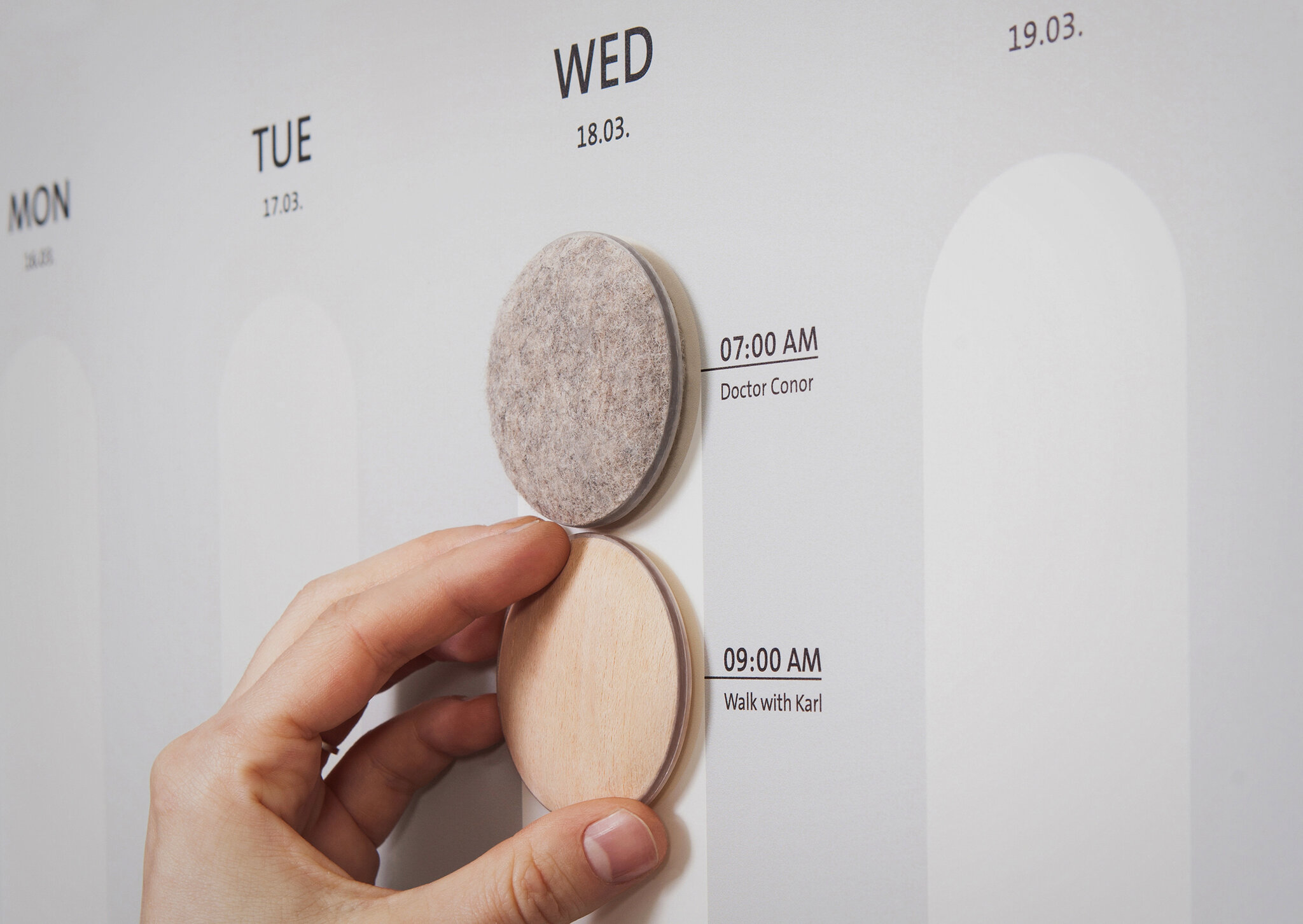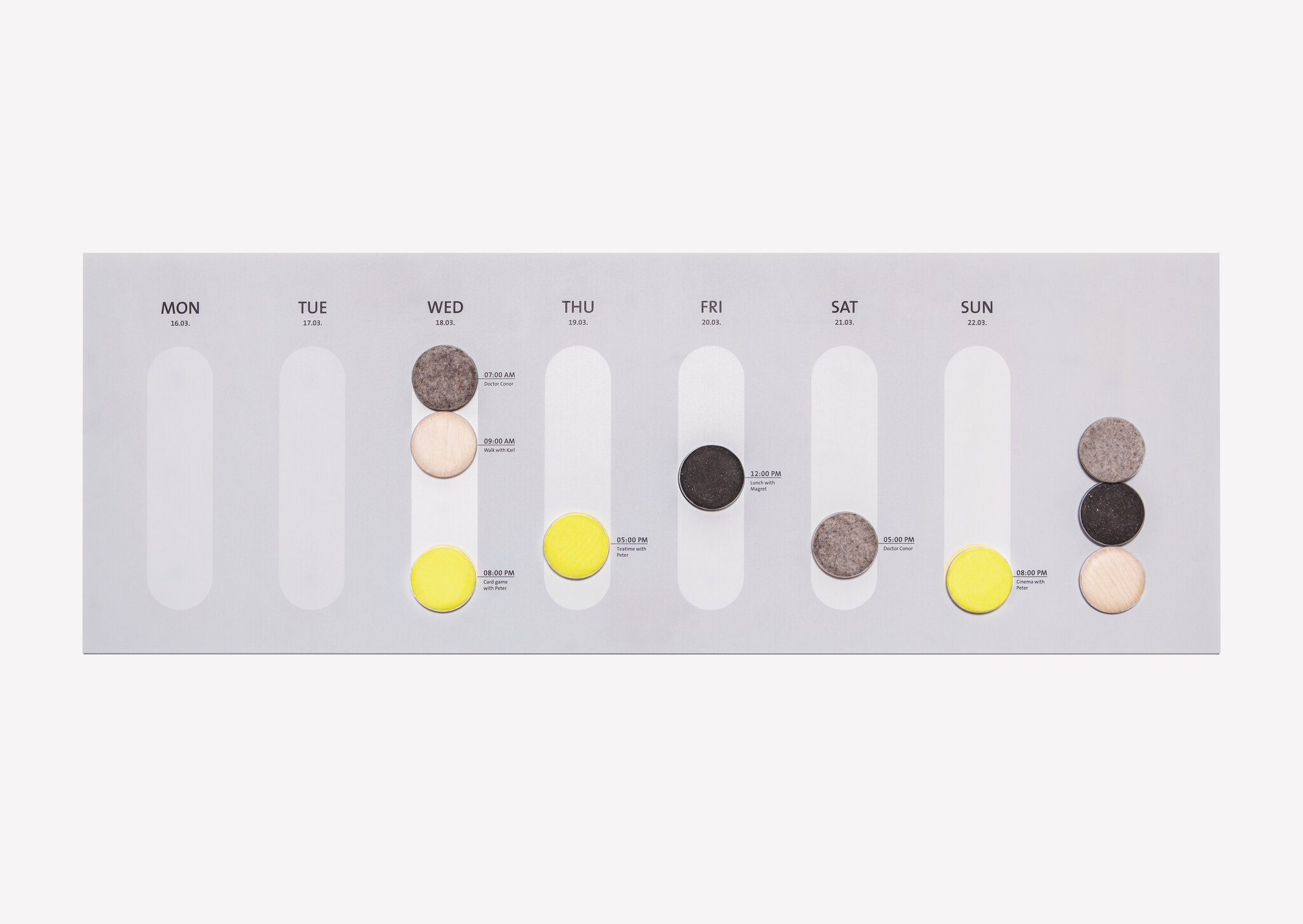Wintersemester 2014/2015, BA/MA Produkt-Design , BA/MA Textil- und Material-Design eLab
MEMO - tangible appointments | Julia Hunold
Memories effect our personality and enable us to manage our daily lives. Memory loss can lead to a crisis of identity and feelings of helplessness. Normally, simple memory aids such as Post-its or wall-calendars can be used to cope with normal forgetfulness and to remind us of up-coming events. However, when individuals experience mild cognitive impairment (MCI), age-related forgetfulness, or more debilitating conditions such as dementia, normal memory aids like wall-calendars no longer suffice. Memory loss makes it more difficult for individuals to manage daily life independently.
How can we remain self-reliant when our cognitive faculties deteriorate?
MEMO expands the design of a normal wall-calendar through the integration of small detachable magnetic objects. Each object represents a particular appointment. They can be removed from the calendar and carried anywhere with you. These portable objects trigger a multi-sensory memory process in advance of an appointment, even when the calendar is not close-by. The MEMO objects are made of materials that the user associates with people they see regularly or events that take place on a regular basis.
Playing music forms another part of the multi-sensory memory process. The music chosen will also be associated with a particular person or event. This allows the MEMO objects to become more easily linked with specific meanings. Both the music and the material should have a personal association for the user, in order to support thought processes in the brain.
The repetition of stimuli through various sensory organs, aids the internalization of memory rituals and events. This awareness of events can be enhanced through the repetition of activities with MEMO objects such as placing and removing them from the calendar. Events do not remain abstract; instead they are experienced and understood on different levels. The MEMO objects give the individual more independence in the absence of a carer. The carer, on the other hand, can feel more confident that appointments will be kept, as a result of the shared rituals.
ProjektkategorieSemesterprojekt Projekt-Fächer BA/MA Produkt-Design, BA/MA Textil- und Material-Design
Alle Rechte vorbehalten Julia Hunold

Alle Rechte vorbehalten Julia Hunold
Alle Rechte vorbehalten Julia Hunold